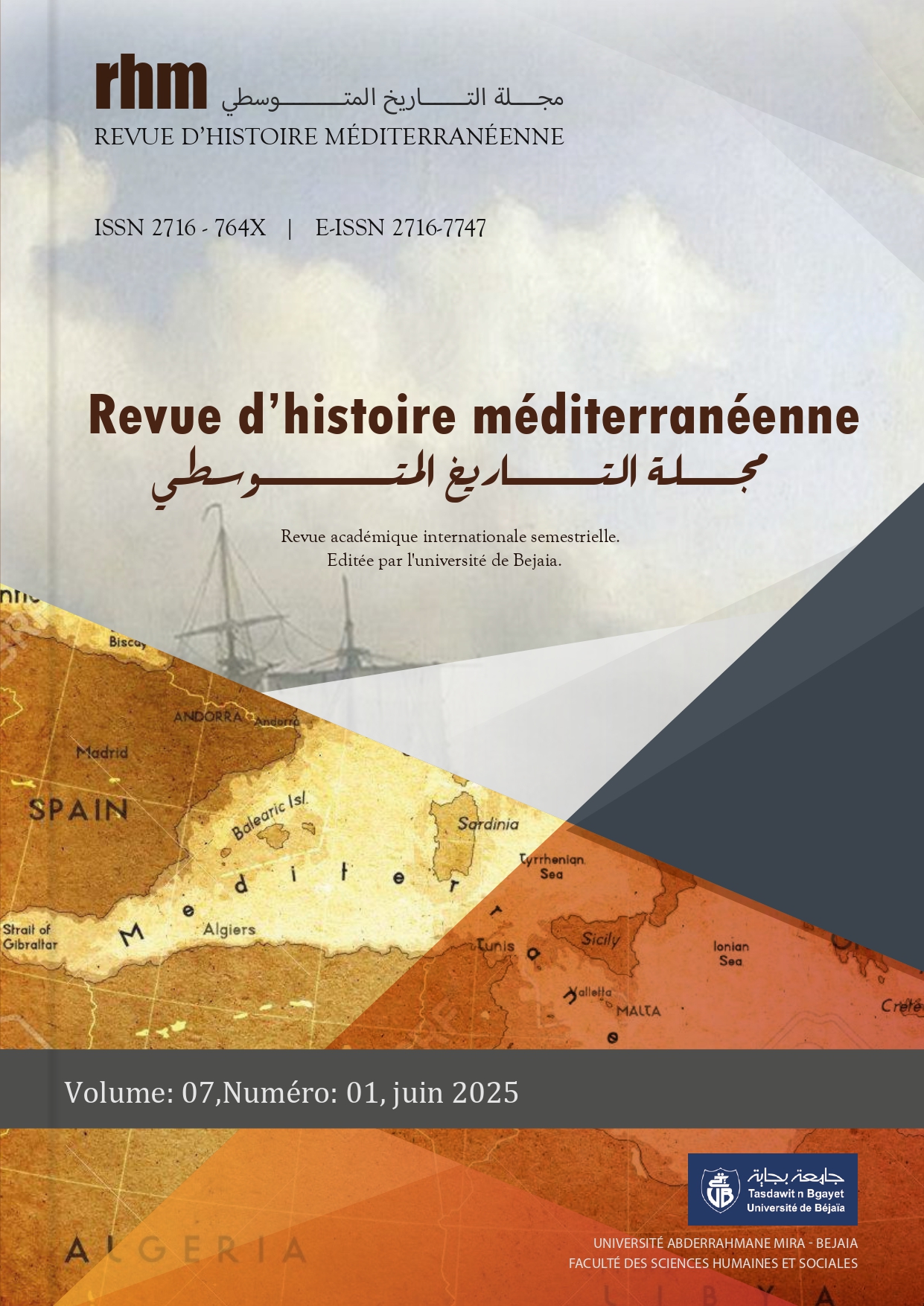Tagrawla n Lezzayer deg tezlit taqbaylit (1954- 1962) : gar lemɛahda d tkatut tamazdayt
Résumé
Tizlit taqbaylit tezga d allal n usenfali ɣef tudert tanmettit d tsertit d yidles. Icennayen cnan ɣef kra n wayen ttḥulfun neɣ i iɛeddan ɣef tmurt n Lezzayer, ama yelha neɣ dir-it, ur ǧǧin asentel, d tayri, d inig, d lḥif, d izerfan, d tamagit, d amezruy. Tagrawla n Lezzayer mgal amnekcam afransis (1954- 1962) yettunefk-as uḥric meqqren deg tezlatin akken ad d-sakin aɣref ɣer umennuɣ seg tama, seg tama nniḍen ad siwḍen takatut tamazdayt i tsutiwin nniḍen, s useqdec n yizamulen d tumnayin s wacu ara kkren yimdanen ad nnaɣen mgal acengu. Ayagi, yeǧǧa icennayen ad sɣeflen imḍebbren ifransisen yerna ad yaweḍ yizen mebla ma lalen uguren d umekcam. Aɣbel-a ddmen-t yicennayen iqbayliyen ɣef yiri-nsen, sebblen iman-nsen, ḥulfan s wayen ttḥulfun yimeɣban d wid yakk yenḥafen ɣef tmurt-a. Cna taqbaylit ama deg tallit n tegrawla neɣ deffir-s, tezga tettawi-d ɣeg wayen akken i yeḍran deg wannar n umennuɣ, akken i rran tajmilt i wid i yefkan idamen-nsen d asfel ɣef tmrut-a, d iḍrisen ara yeddun deg yisebtaren n umezruy n Lezzayer.
Deg umagrad-agi, nefren kra seg yiḍrisen yettwacnan s teqbaylit ; afran n usentel-agi, yella-d imi tizlit d yiwen n wallal s wacu yettεeddi yizen s amseflid, rnu γer-s ad d-nesbeyyen azal i yefka ucennay aqbayli i umezruy n Lezzayer. Llan yinagmayen i ixedmen deg tezlit taqbaylit, i d-ibedren isental icudden γer tegrawlaz n lezzayer akka am Djellaoui Mohamed deg udlis-is «Taṭewwur cciεr lqabayli : bayna tteqlid wa lḥadata» (Asfari n tmedyazt taqbaylit : gar tensayit d tetrarit), yebḍa amud n yisefra d tezlatin i iseqdec i tesleḍt tasentalant. Yebḍa amud-is γef tallit uqbel tagrawla n 1954- 1962, talit n tegrawla d tallit send timmunent n Lezzayer. Iwehha γer wamek i d-yiwi umedyaz yal asentel, akken i d-yesbeyyen azal i yettunefken i umezrut n Lezzayer. Amahil -agi n Djellaoui ur yelli ara iman-is, nezmer ad d-nernu ayen yura Mhenna Mahfoufi deg udlis « Chants et poèmes de la Kabylie dans la lutte de libération, Algérie 1954- 1962 », d adlis ideg isegrew tizlatin n yicennayen yerzan Salimane Azem, Farid Ali … Yiwi-tent-id s teqbaylit d tefransist, iga-asent tasleḍt tasentalant.
Dagi, ad d-nawi awal γer tezlatin yettwacnan γef tegrawla n Lezzayer, yal ta s uszentel iγef d-tiwi, d amagrad ara d-yernun γer yimahilen i yettwaxedmen γef usentel-agi. Nefren ad nebḍu ammud d isental. Ad d-nesbeyyen ayen akken ahat d-ibanen neγ i yellan d uffir, ad neɛerḍ ad t-nsegzi. Yerna ad d-nebder kra seg tezlatin i d-yiwin ɣef liḥala n yigrawliwen, xas ma ur llin seg wid yerzan tagrawla n 1954- 1962, acu kan nwehha akken d yiwet n tnefsit ideg ttidiren.
Akken ad d-nerr γef tmukrist, nefren aglam asentalan n wammud n tezlatin, d tarrayt s wacu ad d-nsuffeγ isental i d-yufraren, iznan i d-ibanen neγ yellan d uffiren, akked udmawen inmettiyen d yidelsanen i d-ttawin yiḑrisen-a yettwacnan.
Ammud, nsegrew-it-id seg youtube d kra n yidlisen akka am udlis n Dellaoui Mohamed «Taṭewwur cciεr lqabayli : bayna tteqlid wa lḥadata» (Asfari n tmedyazt taqbaylit : gar tensayit d tetrarit). (Deg ugzul ulac imedyaten)
Deg yigemmaḑ uγur niweḑ, tizlatin-a bḑant d isental, almend n ddeqs n tegnatin. Azal ameqqran seg-sent, iwint-d γef tnefsit n yigrawliwen d wat uxxam-nsen. D tizlatin i yeskecmen imdanen-agi s innuγen γef yiseγ d liser, tin yernan γer-s tarwa-nsen ad tidir deg talwit.











